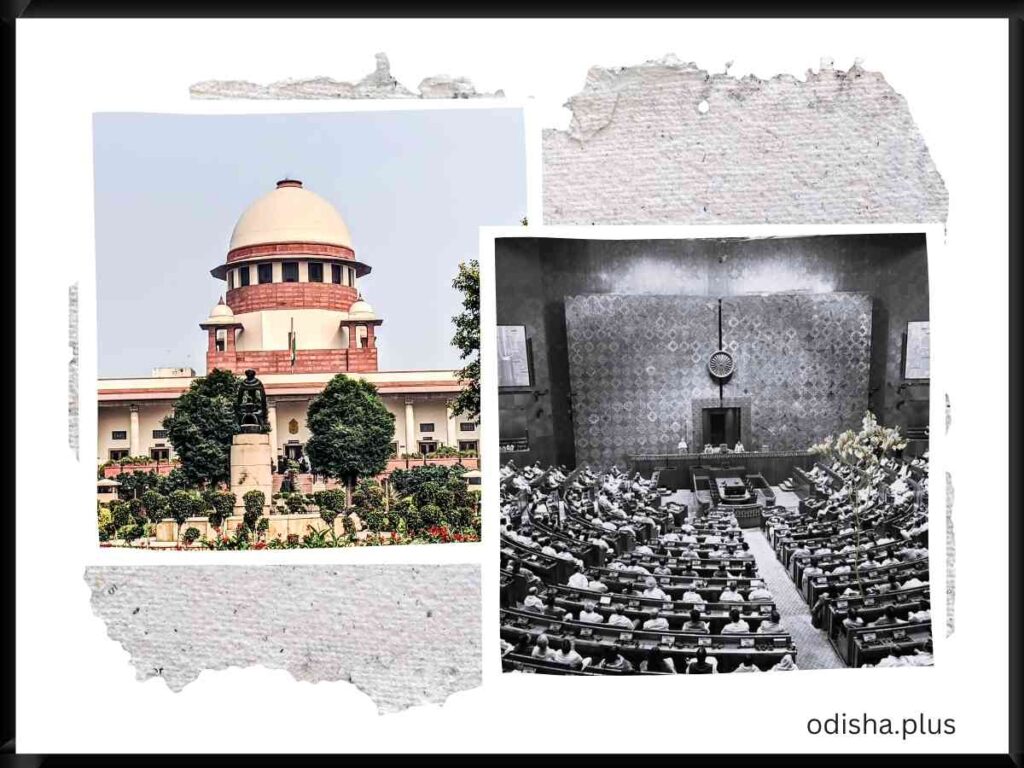India’s struggle with freebies in politics threatens democracy and economic growth
Suresh Chandra Sarangi

Recently, the Global Hunger Index rank was published, which created a huge uproar. As per the findings, India’s GHI score of 27.3, with a rank of 105, is a cause of concern and a matter to ponder. That too, is against the background of the fact that India presents a more dismal situation, in comparison to its South Asian neighbours, like Bangladesh and Sri Lanka, who are much less developed than India. Their rate of economic growth is growing at a much lower speed than that of India.
Politically and economically, while India has received the world’s appreciation and attention for being the fastest-growing economy in the world, India’s ranking is not acceptable to the public in general and the treasury bench in particular. When the neighbouring countries are living with much heightened political and economic chaos, in the case of India, it is believed that things are not properly presented, samples are not correctly taken or empirically viewed, or there may be a falsification of facts that has led to the current estimates.
SC Stricture
All political parties criticize others, but they do not initiate appropriate actions to curb this menace of freebies, and therefore, are not truly accountable. In the past, the Supreme Court of India’s initiative to end this menace by allowing the political parties some time, to nominate members to a committee, which the court wants to constitute to study the problem and suggest measures for tackling freebies in politics was a laudable effort. It is a good development that the center accepted the Supreme Court’s suggestion that freebies are harmful to the nation and must be ended to protect the interest of democracy, on the soil of India.
The political parties who employ freebies as a tool to win an election, have never initiated any stringent action to weed out freebies, during the past so many years and the menace is still growing, which is antithetical to the tenets of democracy and the fabric of the constitutional values. The facts remain that political parties are concerned about losing an election if they withdraw from the politics of freebies.
That they can ill afford to. The electioneering campaign, marred by violence, is more on rhetoric and less on actual achievement, presenting a bizarre and chaotic situation that is more overshadowed by the politics of freebies. It has also been observed that in elections the politico-economic manifesto remains platitude and freebies jump into the centre leaving aside development. In one word, freebies have hit the eye of the storm.
It is open and a flagrant violation of the election code of conduct. A television, free of cost, will decide the outcome of an electoral process. Our literacy is almost above 74.04%. 82.14% of men are literate, while 65.46% of women are literate. There has been a quantum jump in our literacy after India won freedom, with Kerala having 93.91% of literacy.
But still, the masses do not understand and are used like timid personalities so much so that the promise of providing computers by a politician of stature to the citizens, became the talk of the town when he was vehemently opposing the introduction of computers and massive computerization, on the ground of job losses. The relevance of freebies is nil in constructing a developed India by the year 2047 if something serious in dismantling the unworthy practice of contesting elections based on freebies is not done away with.
The fact remains that we were a nascent democracy with an inherited tattered economy, ravished by the onslaught of British people’s uncontrolled plunder. Then how does such an obnoxious practice of freebies creep into the body politic of our democracy? Ours was one of the finest constitutions which saw the light of the day after years of reasoning and debates. They imbibe the spirit of best practices of the British Parliamentary system of democracy, American federalism, the Australian constitution and so many others.
Dialogue & Discourse
India, with its ancient history, is best suited to democracy. The country’s unity in diversity is a unique blend of our faith in the democratic experiment, cutting across caste, religion, region, sex, birth and place of worship. The economic trajectory in recent years is a bright example of triumph and perseverance. Are we more self-seeking? Do we take shelter in corruption under the cloak of democracy? Do we disregard values and ethics? Are dialogue and discourse given a silent burial? It is difficult to predict the prognosis of freebies politics. It appears, somewhere, that we have lost the direction in our journey.
Lord Lothian, a veteran British parliamentarian once visited India. He confronted many questions from the journalist and the most important he confronted was how we can make democracy safe in India. Lord Lothian answered democracy cannot be successful in India unless it produces a set of aristocrats. Annoyed with such a reply, the Indian journalists threw a bouncer at him stating that since you are from the House of Lords and an aristocrat your reply shun the cherished values of democracy.
Lord Lothian, unperturbed, defined an aristocrat as someone who gives more to life than they take. An eerie silence prevailed amidst which Lord Lothian gave his explanation. A country with beautiful marvels like the Right to equality, Right to freedom, Right to constitutional remedies, rule of law, separation of powers with checks and balances, an impartial judiciary and beautiful institutions that safeguard democracy, should not have degenerated into the nasty and abominable game of politics of freebies.
Who is responsible? Who will bell the cat? The economic ramifications are huge. What are the financial implications? What about our moral ethos? Who is playing with taxpayers’ money? Are they short-term relief or a long-term road to chaos and a debt-burned economy? To what extent our public finances have been burdened?
In a deficit economy, where it is difficult to tame down fiscal deficit and inflation and bring back fiscal prudence, freebies politics has made deep inroads into our polity and psyche and the process is irreversible. Is it not that the freebies politics is a huge stride on public funds? Is it not affecting the national purse and affecting the better allocation of resources in the areas of education, science and technology, health care, and social orientation programs?
Voter Behaviour
Voter behaviour has been significantly affected. The result of this type of politics is short-lived. The protagonists of freebie politics opine that in a country like India, where economic inequality rules the roost, this type of politics helps the poor and needy, as they are used for the welfare of the marginalized people. Is voters’ choice free, impartial and independent? Are we postulating some kind of way to defend the indefensible?
Let us realize that freebies competition has been a way of life for political parties, who hate it in prime-time television debates preaching morality and value-based politics and do exactly the opposite in electioneering. Issues are torpedoed, our value system is compromised and the beneficiaries instead of thinking about self-reliance, development, growth, or regional concerns, become fully dependent on freebies politics.
Is this another way to capture the voter’s imagination like the vote bank politics of caste, region and religion? The material incentives, in the name of electoral politics, may prove to be the nails in the coffin of democracy, in years to come. Development would be a causality. Enterprise and entrepreneurship would lose their way into the dreary desert. Populist measures are the symptoms of an ailing democracy, which must be stopped at once.
The issue is broad-based and the challenge is huge. With the mediation of the Supreme Court of India and with necessary progressive legislation from India’s temple of democracy, that is the Parliament, some strict laws must be made and implemented immediately to bring a semblance of rule of law. Then only the rhythm of democracy becomes faster, louder with roots strongly holding the ground for bringing harmony and justice, equality and freedom.
(The writer is a former General Manager of Bank of India and currently a visiting professor at KIIT School Of Management. Views expressed are personal)


























